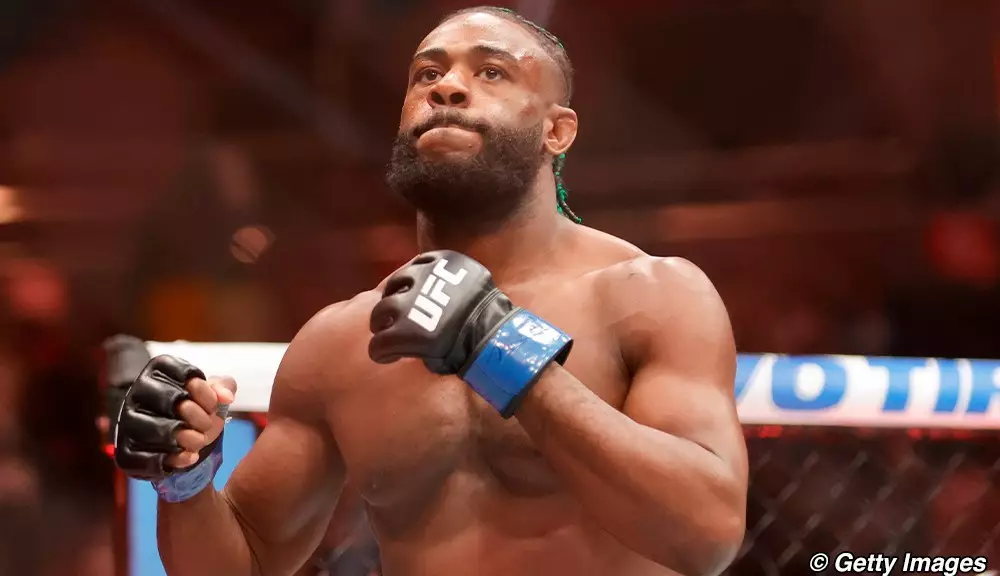Aljamain Sterling’s recent defeat at UFC 310 has left him grappling not only with the physical demands of mixed martial arts but also with the mental and emotional challenges that accompany a career in such a high-stakes sport. Losing a unanimous decision to the undefeated Movsar Evloev marked a pivotal moment for Sterling, whose aspirations of reclaiming championship glory were dealt a significant blow. At 24-5 in MMA and 16-5 in the UFC, Sterling has proven himself as a formidable contender, yet now he finds himself at a crossroads, pondering the next chapter of his career.
In the highly competitive realm of the UFC, each fight can dramatically alter an athlete’s trajectory. Sterling’s intense battle with Evloev reaffirmed his capability to compete among the elite fighters in the featherweight division, yet the loss brings forth pressing questions about his future ambitions. The disappointment of falling short in a closely contested fight poses a dilemma: does he continue to chase another title, or does he reassess his fighting strategy and goals moving forward?
Sterling’s reflections reveal a deeper contemplation about the sacrifices that come with training, as he admitted to needing time to process what comes next in his career. He openly discussed his uncertainty on his YouTube channel, posing questions about whether he possesses the physical fortitude and motivation to continue competing at a high level. “I don’t want to say from scratch, but the end goal is so much further,” he explained. This highlights the grim reality of professional sports: as athletes age, they must contend with both their waning physical capabilities and the daunting prospect of climbing a demanding ladder of competition.
Physically, Sterling is feeling the effects of a long, arduous career. The toll that rigorous training and countless fights take on the body cannot be overstated. Sterling candidly articulated his struggles with adapting to a training regimen that once included multiple sessions each day, emphasizing how his body now limits those demands. “I can’t train the way I used to,” he admitted, signifying an important inflection point where an athlete’s past successes might not seamlessly translate into future performances.
Sterling’s tenure in the UFC has been nothing short of historic; he holds the record for the most bantamweight title defenses at three. However, the path can often feel daunting when contending with younger, emerging fighters and ever-evolving divisions. The repercussions of his previous defeat to Sean O’Malley at UFC 292—before stepping into the featherweight realm and subsequently facing Evloev—have left him questioning the viability of returning to the bantamweight division or delving deeper into the featherweights.
For a fighter in his position, making the decision to continue or step back is not just strategic but profoundly personal. Sterling’s internal conflict resonates with many athletes who face similar dilemmas. His inclination to possibly pivot to coaching or mentoring—“help out the guys and help them get ready for their fights”—reflects a desire to contribute to the sport while debating his own competitive future.
The Path Ahead: Analysis and Anticipation
As he contemplates his next steps, Sterling can take solace in the growth he has experienced throughout his career. Although he finds himself in a precarious situation, he recognizes that there may still be opportunities to regain traction within the competitive space. His acknowledgment that his stock may have risen despite the loss to Evloev serves as an important reminder of the fluid nature of rankings and standings in the UFC.
Looking ahead, the ultimate question remains: what does Aljamain Sterling truly desire from the rest of his career? Will he commit to the rigorous climb back to championship contention, or will he embrace a modified role within the sport that allows him to leverage his vast experience and knowledge while potentially enjoying a lighter competition schedule? Only time will tell, but just as he has navigated through challenges in the octagon, Sterling’s resolve and adaptability will undoubtedly play a critical role in shaping the next phase of his journey.

